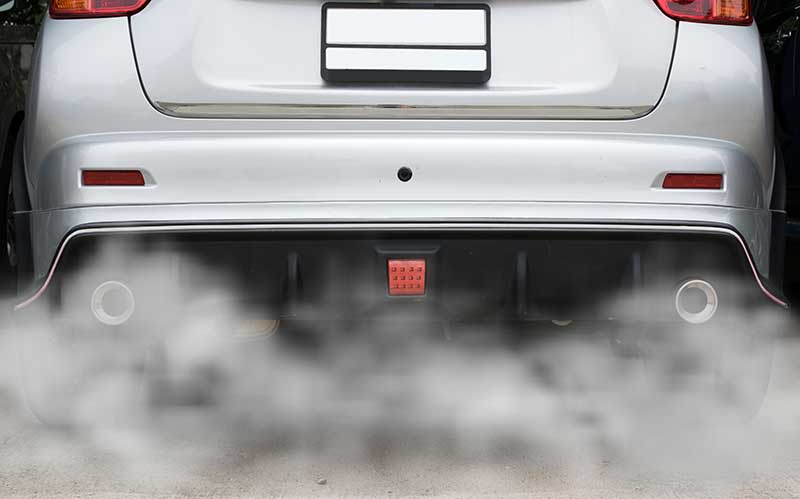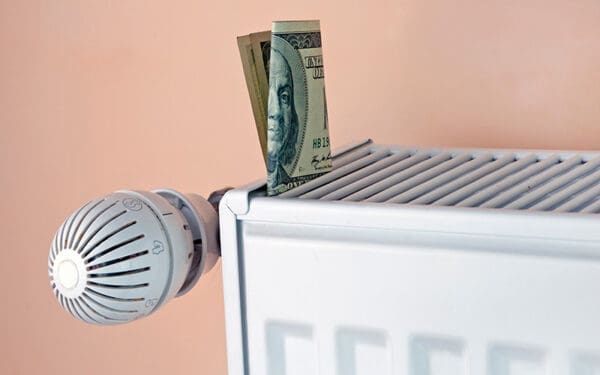
President Trump is rolling back clean car standards that protect our air and our health. Photo: ©Orlando Stocker via Shutterstock
The Environmental Protection Agency (EPA) has announced its plans to reverse the nation’s landmark clean car standards. The impacts of weakening the standards will be widespread and severe, and will include raising costs for American families and businesses on gas, while dirtying the air that we breathe and harming the health of our families and communities.
The clean car standards under attack cover fuel efficiency and emissions. Trump’s EPA has decided that our current standards are “not appropriate;” however, the agency adopted these successful standards after extensive, comprehensive analysis and with the support of automakers. These standards set historic mile per gallon targets and protect American’s health, wallets, and national security while driving innovation throughout the automotive market. Now, the EPA wants to weaken them at our expense.
EPA’s Decision Threatens Americans’ Health and Savings
Make no mistake: this roll back will hurt Americans where it matters most – our health. Dirtier cars mean dirtier air. Already, 25 million Americans suffer from asthma, a respiratory condition exacerbated by pollution from tailpipes. Rolling back these clean car standards threatens the well-being of our children, the elderly, and those who already suffer from health conditions – the most vulnerable members of our communities. Car pollution also disproportionally impacts the health of families in low-income communities.
Rolling back these standards will not only impact our health, it will also cost us money. Americans will pay more to fill up their tanks every time they visit the pump. The Obama administration’s clean car standards were projected to save drivers thousands of dollars over the lifetimes of their vehicles. The fuel economy and emissions standards for new cars and trucks (those sold between 2017 to 2025) were projected to save consumers about $50 billion by 2030.
Beyond the hit to our wallets at the pump, cutting back the clean car standards could also imperil hundreds of thousands of American jobs. There’s a whole industry working to advance innovative new automotive technologies, developing and building cleaner, safer, and more efficient automobiles. These jobs are in jeopardy if the EPA dismantles the clean car standards.
And let’s not forget about the enormous costs associated with climate change. Vehicle emissions are already one of the largest sources of global warming pollution in the country. And you guessed it – weaker emissions standards mean more pollution contributing to climate change.
New England Is Fighting Back
Here in New England, most states have already chosen strong standards to protect their citizens from the health threats posed by emissions from cars and trucks. The 13 clean car states represent 113 million Americans and over a third of the country’s automotive market. These states have already demanded cleaner, more efficient cars – and enjoy the cost savings, safety advantages, and health benefits that come with them.
But despite our work at home for fresh, clean air, a federal rollback will nevertheless threaten the air quality in New England. If other states roll back their emissions standards, we’ll become increasingly surrounded by dirtier vehicles and more polluted air.
The EPA clean car standards are working. The EPA said so itself just over a year ago. Automakers are even on track to meet them at lower costs than originally anticipated.
But instead of holding firm, the federal administration is prioritizing big polluters’ pocketbooks over our health and financial well-being. It’s now time for individual states – particularly New England states that have already taken this issue into their own hands – to step up. Some have already announced their intention to resist federal efforts to limit states’ rights to protect their citizens from high driving costs and dirty air.
EPA is expected to move forward on weakening the clean car standards early this summer. At that point, Americans will have an opportunity to submit comments to the agency for consideration. CLF will let you know when it’s time to tell the federal government what you think about the no-brainer that is more efficient vehicles.



